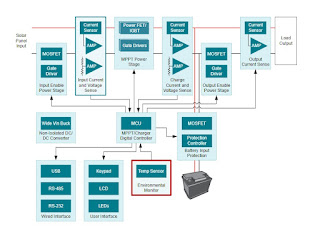Analysis of NXP’s industrial and commercial energy storage technology solutions: a powerful driver of energy change
【Lansheng Technology News】Currently, the industrial and commercial energy storage market is in its infancy and has become very popular. NXP Semiconductors currently launches system solutions for industrial and commercial energy storage and large-scale storage, which effectively improves users' design and development speed. NXP Semiconductors has the ability to integrate overall solutions and has an extremely rich product line, ranging from analog front-end AFE to MCU, from sensors to communication interface devices.
Currently, the industrial and commercial energy storage market is in its infancy and has become very popular. NXP Semiconductors currently launches system solutions for industrial and commercial energy storage and large-scale storage, which effectively improves users' design and development speed. NXP Semiconductors has the ability to integrate overall solutions and has an extremely rich product line, ranging from analog front-end AFE to MCU, from sensors to communication interface devices.
In the traditional sense, industrial and commercial energy storage is mostly divided into three-tier architecture, as shown in the figure below: For the bottom battery pack and battery cluster first-level CMU unit, LPC5506/16 is extremely cost-effective, and it can be used in conjunction with MC33665 to support the daisy chain Multiple MC33771/4 battery pack management units can also support the expansion of multiple MC33771/4 battery pack management units using the traditional SPI/I2C interface method. In order to improve the economy of the system and ensure the stability of the system, it is recommended that a single battery pack or a single cluster be connected using a daisy chain method. For communication between clusters and the MBMU, it is recommended that the CAN bus be used for connection.

For MBMU units (as shown in the figure below), RT10xx series MCUs such as (RT1021, RT1064) provide industry-leading computing capabilities of more than 500MHz, support up to 3 channels of CAN communication, and have multiple interfaces such as Ethernet. It can meet the performance requirements of traditional energy storage system applications, and communicates with different cluster CMU controllers LPC5506/16 through the CAN bus, effectively ensuring the high scalability and reliability of large-scale systems.

Conventional CMUs come in two forms (daisy chain or isolated SPI/I2C). NXP’s solution allows customers to flexibly choose according to their needs and choose the corresponding CMU communication mode.
Daisy chain mode to expand multiple AFE acquisition units
As shown in the figure below, the CMU controller LPC5506/16 expands multiple AFE modules through a daisy chain. A single AFE chip usually supports 14-18 string batteries.

SPI (I2C) mode expands multiple AFE acquisition units
LPC5506/16 has multiple sets of FlexComm interfaces inside, which can flexibly configure up to 6 or more SPI channels or more than 6 I2C channels, as shown in the figure below: Multiple AFE modules can be expanded and managed through these traditional communication interfaces, which is compatible with most of the products on the market. AFE analog front end.

Finally, for some high-performance application requirements, NXP i.MX series MPU can provide high-performance system interconnection and Linux-based application development platform, which greatly expands the application of industrial and commercial energy storage systems EMS and MBMU.

At the same time, NXP continues to invest in the development of AFE products and believes that more innovative products will soon be launched and applied to industrial and commercial energy storage systems.
Lansheng Technology Limited, which is a spot stock distributor of many well-known brands, we have price advantage of the first-hand spot channel, and have technical supports.
Our main brands: STMicroelectronics, Toshiba, Microchip, Vishay, Marvell, ON Semiconductor, AOS, DIODES, Murata, Samsung, Hyundai/Hynix, Xilinx, Micron, Infinone, Texas Instruments, ADI, Maxim Integrated, NXP, etc
To learn more about our products, services, and capabilities, please visit our website at http://www.lanshengic.com


Comments
Post a Comment